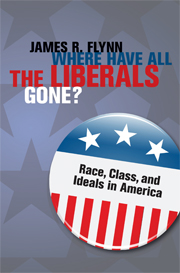Book contents
- Frontmatter
- Contents
- List of figures and maps
- List of tables
- List of boxes
- Acknowledgments
- Prologue
- Part I St. Thomas Jefferson
- Part II Blacks and the pursuit of happiness
- Part III Yours for a better world
- 5 Saving equality from the dustbin of history
- 6 Jefferson and Social Democracy
- 7 The America who would be king
- Part IV A history of moral confusion
- Epilogue
- Appendix: tables with comments
- References
- Index of names
- Index of subjects
7 - The America who would be king
from Part III - Yours for a better world
Published online by Cambridge University Press: 22 September 2009
- Frontmatter
- Contents
- List of figures and maps
- List of tables
- List of boxes
- Acknowledgments
- Prologue
- Part I St. Thomas Jefferson
- Part II Blacks and the pursuit of happiness
- Part III Yours for a better world
- 5 Saving equality from the dustbin of history
- 6 Jefferson and Social Democracy
- 7 The America who would be king
- Part IV A history of moral confusion
- Epilogue
- Appendix: tables with comments
- References
- Index of names
- Index of subjects
Summary
What is at stake is not Iraq but our global role.
(Zbigniew Brzezinski)This war … shows that the US administration is trying to make the world its own province.
(Mikhail Gorbachev)Our history of the last 50, 60 years is quite clear. We have liberated a number of countries, and we do not own one square foot of any of those countries except where we bury our dead.
(Colin Powell)America once hoped to show the world a shining example of a nation free of the corruption that attended being a great power in the classical European tradition. One of the most shattering blows to our morale is the general contempt for our international behavior that prevails. How might we revise our thinking to give us a global role that would command respect?
My language is that of moral idealism. I well recall my dismay as a student when my lecturer Hans Morgenthau attacked idealism in general, and Wilsonian idealism in particular, as a possible basis for American foreign policy. Later I understood what he meant: that ideals had to be firmly grounded in political reality. But that term needs clarification. What I will propose is not politically realistic in the sense that there is much chance of American policy makers accepting it in the near future. I am not a candidate for office.
- Type
- Chapter
- Information
- Where Have All the Liberals Gone?Race, Class, and Ideals in America, pp. 174 - 208Publisher: Cambridge University PressPrint publication year: 2008



